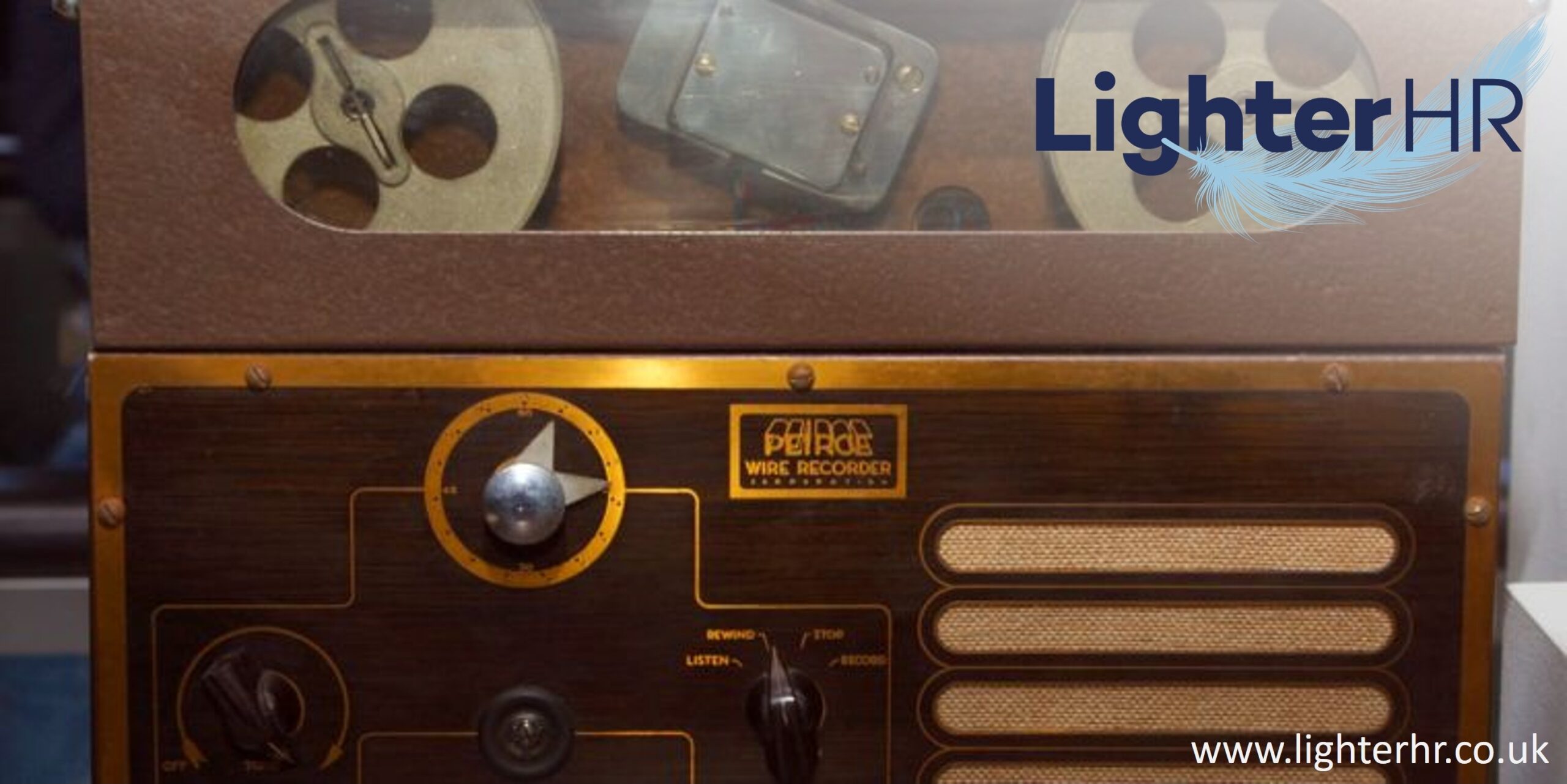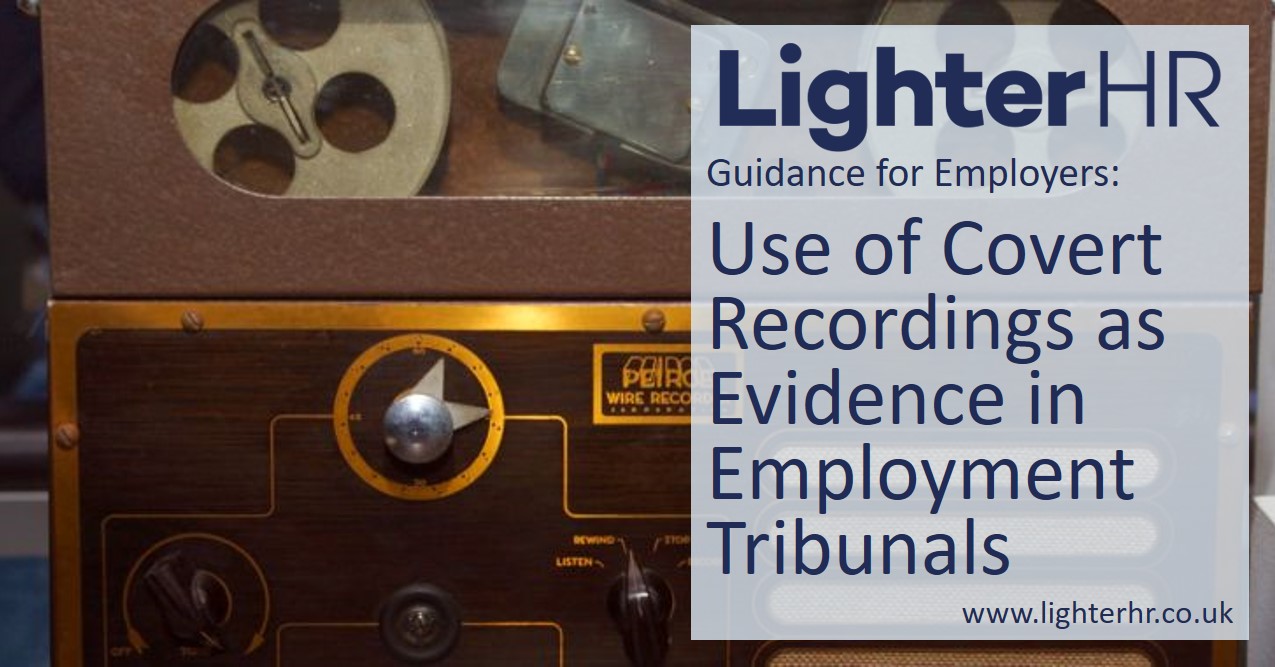One of our most popular blog posts covers the subject of covert surveillance and the rules for both employees and employers.
The area of whether or not covert recordings can be used as evidence in employment tribunal situations has always been fairly complicated. There have been important developments that mean employers need to exercise additional caution.
1. Covert Recording – Established Rules
When it comes to the admissibility of covert recordings in Employment Tribunal situations, the Employment Tribunal panel has discretionary powers when deciding whether or not the recordings can be used as evidence. In general, it has been accepted that there are some circumstances in which the only way an employee is able to prove their case is by undertaking covert recording, and in these circumstances it is likely that the panel will allow the recordings to be used.
Relevance
The case of Vaughan v London Borough of Lewisham tackled the issue of relevance. In this case, the claimant had 39 hours of recordings. They had made no effort to transcribe these or to highlight those which it was felt supported the claim. The original hearing saw the panel decide that this was inadmissible as evidence. This decision was upheld by Employment Appeal Tribunal who clarified that covert recordings can be used as evidence but that they need to be relevant to the hearing.
It’s worth searching for this particular case if you have a minute as it’s an eye-opening read and you can find a great summary here. This claim is one of the few cases where the employer has succeeded in achieving a cost award against a complainant and it’s for a staggering £87,000. The Employment Tribunal made this award as they concluded that Vaughan’s claim had been wholly misconceived. It does restore some faith in the system when facing employee issues.
Public or Private
Another case which looked at the admissibility of covert recordings was Amwell View School Governors v Dogherty. In this case, Dogherty undertook covert recording during a disciplinary hearing. Shey then continued to record the disciplinary panel as they undertook private deliberations. The decision was reached that the covert recording of the disciplinary hearing could be used as evidence as it was important enough to be submitted. Dogherty had been present in the room during these recordings and therefore the members of the disciplinary panel were aware that everything they said was being heard by her.
However, the recordings of the private deliberations of the disciplinary panel after Dogherty had been asked to leave the room were not permitted. It was felt that it was in the public interest to ensure that people felt that private deliberations were private.
2. What’s Changed in Employment Law for Covert Surveillance?
Although little in the law has changed, an important update in their use has been raised in the case Punjab National Bank v Gosain. In this case, Gosain wanted to use covert recordings of the discussions which took place during adjournments at grievance and disciplinary hearings.
On the surface this would seem to be the same situation as Amwell View School Governors v Dogherty and you would therefore think that this would not be allowed. However, the decision was made that the recordings could be allowed because they were of discussions which were not directly relevant to the disciplinary and grievance situations.
3. Where Does this Leave Your Business?
There are some key things which we advise our clients to do in regards to minimising the chances of covert recording taking place:
- Have a policy in place which states that employees are not allowed to undertake any recording on company premises.
- Make sure your disciplinary and grievance policies are clear that recording of hearing meetings isn’t permitted.
- Start any hearing with a reminder of the rules on recording, and request that all mobile phones and devices are switched off and placed in clear view.
- Undertake any deliberations in a separate room where you can be sure that you are not being recorded. If this isn’t possible then request that all personal belongings of the employee and any companion are removed from the room during your discussions.
This is an area where we are seeing more and more issues so it is worth making sure that your policies are up-to-date and cover covert recording.




